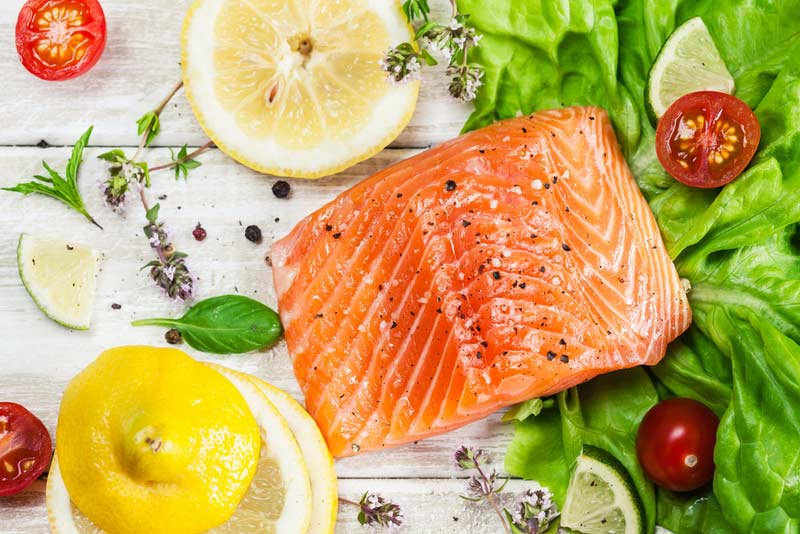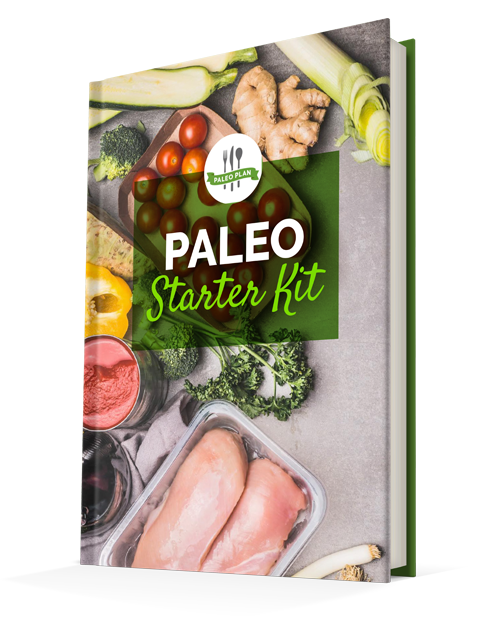
We seem to always crave food that is high in sugar and fat, yet we never find ourselves craving a huge bowl of broccoli. What gives?
Craving certain foods is a multifaceted experience. There’s a cognitive component and an emotional component – aka “I am having a terrible day so I want to go home and eat my bodyweight in fro-yo.” And there’s even a physiological factor: you literally feel good after you eat certain foods.
It turns out cravings aren’t totally our fault. In fact, research suggests that many cravings are often a cry from our body, letting us know that it is seriously lacking in several key vitamins, nutrients, and minerals. These things help to regulate appetite, mood, hunger levels and cravings.
It’s not that our body desperately needs a piece of chocolate cake, we just misinterpret what our body is crying out for. Cravings, poor mood and stubborn weight issues can indicate psychological roots, specific nutrient needs, and/or vitamin deficiencies.
For every gram of sugar you consume, your body uses between 28-53 molecules of magnesium.
Certain food cravings can be triggered by specific moods. We all crave comfort foods when we are stressed out, lonely or sad. This has been linked to alterations in our gut microbiome, dysregulated cortisol levels and a low level of serotonin. (4) Research even found that highly stressed individuals report having more cravings than non-stressed individuals. (5)
The next time a craving strikes, pay attention to what the actual craving is. Do you notice that every time you have a bad day at work you rush home to eat ice cream? Do you have emotional triggers that cause you to overindulge? This self-reflection will help you control your cravings and make healthier choices on tough days.
Here are nine common nutrient deficiencies that might be at the root of your cravings:
Calcium

The Nutrient: We need calcium for more than strong bones; we need the mineral for nerve impulses, blood clotting, and for our heart to pump blood. Every cell in the body requires calcium and our body has very tight control of how much calcium is in the blood at any time. Our body will actually pull calcium from our bones when our blood levels drop or we experience pH changes in the body.
While many people think milk is a great source of calcium, it’s difficult to absorb calcium from dairy. Up to 75 percent of the population experiences lactose intolerance, meaning they lack the enzyme necessary to digest lactose. Stress, intense exercise, and too much sugar can all deplete your calcium stores.
Signs of a Deficiency: If you find yourself craving sodas, carbonated drinks and even dairy this could be a sign you need more calcium.
What To Eat:
Increase your intake of plant-based calcium sources such as (6):
- Dark leafy greens
- Turnip greens
- Broccoli
- Kale,
- Celery.
- Pumpkin seeds
- Brazil nuts
- Almonds
- Asparagus
- Coconut meat.
For non-plant sources, try:
- Sardines
- Salmon
- Tuna
Magnesium

The Nutrient: Known as our relaxation mineral, magnesium contributes to nearly 700 enzyme and biochemical processes in the body. Our body has roughly 3,500 different binding sites for magnesium in our cells.
Up to 80 percent of the population is deficient in magnesium. It’s easily depleted in times of chronic stress, extreme exercise, during menstruation and when we consume sugar. In fact, for every gram of sugar you consume, your body uses between 28-53 molecules of magnesium.
Magnesium acts like a gate keeper for calcium, as it allows calcium to be excreted from our cells in response to various stressors. Calcium acts as an excitatory molecule, while magnesium acts as a calming molecule. Having imbalances in these minerals can lead to issues with our mood.
Signs of a Deficiency: If you find yourself having intense cravings for sugar and feel fatigued and sore, you may need more magnesium. This is true as well if you experience muscle twitches and cramps, depressed mood, and anxiety.
- Dark chocolate (be sure it is organic with at least 70% cocoa content and no added sugar)
- Avocados
- Raw cacao
- Cashews
- Almonds
- Pumpkin seeds
- Sesame seeds
- Dark leafy greens such as spinach, kale and broccoli.
Zinc

The Nutrient: Zinc is a part of at least 3,000 different proteins in your body and is involved in more than 200 different enzymes. In fact, zinc is involved in more enzymatic reactions in your body than any other mineral. Its highest concentrations are in your hippocampus, which deals with memory and mood.
This key mineral is important for our immune system, cellular growth, sleep, skin, insulin regulation, hormone balance and mood support. The body has no special storage capacity for zinc, so it is important to consume zinc-rich foods on a regular basis.
Zinc plays a role in modulating the brain and body’s response to stress and has been linked to depression. Under times of extreme stress, we get rid of zinc at higher rates through our urine, sweat and saliva. (9, 10)
The Signs of a Deficiency: If you suffer from GI distress, experience low moods, have extreme PMS, have high stress or take antacids and OTCs you likely could benefit from more zinc.
What To Eat:
- Oysters
- Shellfish
- Salmon
- Grass-fed meat
- Pasture-raised chicken
- Unsweetened dark chocolate
- Pumpkin seeds
- Spinach
- Almonds
Omega-3

The Nutrient: Omega-3 fatty acids are known as essential fatty acids. Our bodies cannot make them on their own, so they must either be obtained through our diet or through supplements.
Signs of a Deficiency: Cravings for sweet, fatty foods, cheese and carbohydrates can be a sign of omega-3 deficiencies, as well as having poor mood and brain fog. (11)
What To Eat:
Essential fatty acids can be divided into three types: ALA, EPA and DHA, all of which can be found in:
- Wild caught fish, such as tuna, salmon, and sardines.
- Walnuts
- Flax seeds
- Hemp seeds
- Chia seeds
- Some algae such as spirulina.
Vitamin B12

The Nutrient: Roughly one in four Americans are deficient in Vitamin B12, a vitamin associated with memory, mood, energy and red blood cell health. Vitamin B12 is our largest vitamin and requires a good amount of stomach acid and a protein, called intrinsic factor, to break it down and absorb it. This is likely why so many people have suboptimal levels of this key vitamin.
Vitamin B12 can only be obtained from animal sources, as plant sources of B12 are in the analog form, which cannot be absorbed by the body. Methylcobalamin is the active form of B12 that the body can use, which can be found in methyl B-12 supplements or animal sources of B12. (12)
Signs of a Deficiency: If you have low energy, find yourself craving meat, suffer from anemia, or find yourself bruising easily, you likely could benefit from getting more B12 in your diet.
What To Eat:
This is a case where you want to eat what you crave. Increase your intake of:
- Organic grass-fed meat
- Venison
- Veal
- Bison
- Pasture-raised chicken, turkey and eggs
Folate

The Nutrient: Also known as Vitamin B9, folate is the active form of folic acid that is necessary to support cardiovascular health, cellular health and cognitive health. With up to 40 to 60 percent of the population having the genetic variant for the MTHFR gene, consuming folate-rich foods, as opposed to synthetic folic acid, is necessary for overall health.
Methyl Folate is the biologically active form of Vitamin B9. It is also the form that is transported across membranes into peripheral tissues, particularly across the blood brain barrier. Methyl folate is used in the methylation process, which contributes to DNA health, detoxification pathways, and cell health.
Signs of a Deficiency: Natural dietary folate is found in food, while Folic acid is the synthetic form of B9 required to be added into processed grains. (13) If you crave processed grains, you may need more folate. This is also true if you have a history of cardiovascular disease, miscarriages, or experience fatigue, low energy, loss of appetite, anemia and have changes in mood and irritability.
What To Eat:
- Dark leafy greens such as spinach and arugula
- Beets
- Bell peppers
- Cauliflower
- Asparagus
- Broccoli
- Lentils
- Avocados
- Okra
- Brussels sprouts.
Vitamin D

The Nutrient: Also known as the sunshine vitamin, Vitamin D acts as a pro-regulatory hormone in the body, influencing over 2,000 genes. When our skin is exposed to the sun, Vitamin D produces compounds that support healthy moods.
With up to 70 percent of the population being deficient in Vitamin D, it is no surprise that our mood, cravings and even our immune health can be affected by having low levels of this vital vitamin. Scientists found that people with low vitamin D symptoms are 11 times more prone to be depressed than those who had normal levels. (14)
Signs of a Deficiency: If you find yourself getting sick a lot, having poor mood, bone loss, back pain and feel tired and fatigued you likely have low vitamin D levels.
What To Eat:
- Fatty fish, such as tuna, mackerel and salmon,
- Beef liver
- Egg yolks
Note: Getting outside and playing in the sun can be a great way to increase your Vitamin D levels, but be sure to expose roughly 70 percent of your skin as close to solar noon as possible.
Selenium

The Nutrient: Selenium is an antioxidant-rich essential trace mineral that works in conjunction with other enzymes and proteins in the body. Selenoprotein S in particular is involved in the protection against cellular stress and regulating the release of pro-inflammatory cytokine release.
Adequate selenium levels are essential for not only proper immune function, but also for regulating excessive immune response (found at the root cause of several autoimmune diseases), chronic inflammation and protecting cells against free radical damage. (15)
Signs of a Deficiency: A decline in cognitive health, thyroid functioning and immune health, as well as heart disease and infertility may be signs of a selenium deficiency. If you find yourself excessively tired, as well as craving salty foods you could benefit from increasing your selenium intake.
What To Eat:
- Brazil nuts
- Garlic
- Tuna
- Nori
- Seaweed
- Sunflower seeds
- Turkey
- Lentils
- Spinach
Antioxidants

The Nutrient: Antioxidants are categorized as either fat soluble or water soluble. However, your body needs both to protect your cells from oxidative damage and free radical damage.
Antioxidants help rid the body of dangerous oxidative products by converting them into hydrogen peroxide, then into water. This is done through a multi-step process that requires a variety of trace minerals, such as zinc, copper, manganese, and iron, which are found in foods that are rich in antioxidants.
Signs of a Deficiency: If you have low energy levels, crave sweets, seem irritable and have general low immune function you can benefit from getting more antioxidants into your diet.
What To Eat:
- Organic fruits and berries
- Chlorophyll-rich vegetables
- Lemons and limes
- Grapefruits
- Tart cherries
- Sulfur-rich veggies like onions, garlic, broccoli, cauliflower, and broccoli sprouts.
- CoQ10-rich foods, such as grass-fed beef, liver, sardines and mackerel.
(Read This Next: 9 Surprising Health Benefits of Vitamin D)
